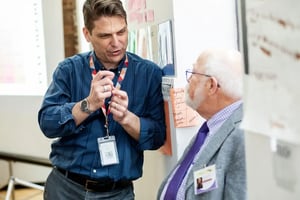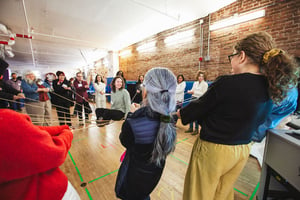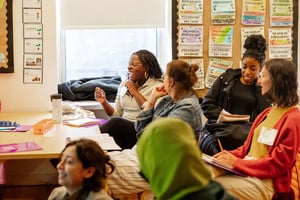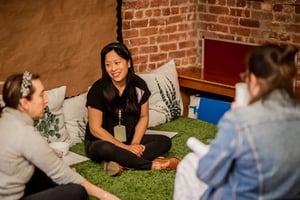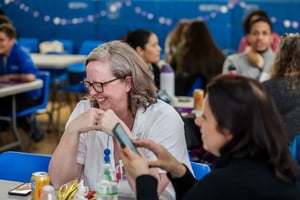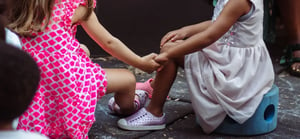
The 6th Annual Art of Play and Wonderment Conference:
Nurturing Compassion
The Art of Play and Wonderment is an early childhood education conference designed to provide a space for educators, administrators, students, professors, and researchers to gather and reflect upon, celebrate, and share what we bring — and wish to bring — to our early childhood classrooms, professional practice, and research. In particular, we examine how play, joy, inquiry, and wonderment impact and inspire meaningful teaching and learning.
The 6th annual conference, taking place Saturday, May 31 at Corlears School in partnership with Brooklyn College, will be centered on the theme Nurturing Compassion.
1 DAY
15+ WORKSHOPS
3.75 HOURS
See the Schedule
Below you'll find an overview schedule of the day; navigate the below menu to view workshop descriptions for each breakout session. Please note that the schedule is subject to change. Final, printed schedules will be provided on the day.
Last updated May 12.
- Overview
- Breakout Sessions I
- Breakout Sessions II
- Breakout Sessions III
Workshops:
- Artist Biofiction in Picture Books: Early Childhood’s Role in a Relational View of Creativity
- Making Messes Makes an Inclusive Classroom
- This Timeless Question, This Gathered Moment: What Our Play, Imagining, and Wondering Knows
- The Equation of Care: Fostering Compassion in Math Teaching and Learning
- Nurturing Through Narrative and Role Play
View presenters and workshop descriptions by navigating from "overview" to "breakout sessions I" in the above dropdown menu.
Workshops:
- Mine, Mine, Mine! Conflict in The Toddler Classroom
- Early Childhood Educators' Perception of Play-Based Learning in Preschool Classrooms
- Developing Preschool Children's Scientific Concepts Through Promoting Scientific Play
- Special Education: Compassion in the Current Education Climate
- Powerful Interactions®: A Framework for Transforming Everyday Interactions with Children into Powerful Interactions®
View presenters and workshop descriptions by navigating from "overview" to "breakout sessions II" in the above dropdown menu.
Workshops:
- Practicing Self-Compassion, Resilience and Co-Regulation as Early Childhood Providers: Wellness Strategies for ECE and The Children They Serve
- Puppetry and Creative Play
- Blurring the Lines Between Floortime and Daily Living
- Social-Emotional Learning Through Insect Encounters: Developing Empathy in Outdoor Play and Exploration
- The Power of Play: Nurturing Compassion to Elevate Practice
- Renewed Hope: Therapeutic Yoga and The Human Brain
View presenters and workshop descriptions by navigating from "overview" to "breakout sessions III" in the above dropdown menu.
For those interested, Colleen will be leading tours of Corlears School's Reggio Emilia-inspired classroom spaces.
Andrew Hauner, M.F.A.
Head Teacher, Beginnings Nursery School
When we examine artist biofiction in the form of picture books from a child-centered, early multiliteracy perspective, what kind of contributions do these books make to a relational and sociocultural understanding of creativity? By examining artist biofiction picture books through the eyes of young children, we see that the biofictional process of becoming a so-called lone creative genius is naturalized in contemporary picture books. My interactive, digital presentation of my ongoing research looks at how picture-book artist biofiction can resist perpetuating the myth of the lone creative genius by taking into account how children’s readership entails intersubjective forms of reading, how one of children’s primary reader interests is childhoods, and how picture books center on interplay — even nondistinction — between word and image. How can such books help us — along with young children — explore the Vygotskian idea that "art is the social within us"?
Dimitris Alexakos
Research Assistant to Beth Ferholt, The Graduate Center of The City University of New York
Beth Ferholt, Ph.D.
Professor, Department of Early Childhood and Art Education, Brooklyn College
Emma Steele
Student, Brooklyn College
Jahidah Diaab
Curriculum Specialist (Materialista), Barrow Street Nursery School
Brenna Fisher, M.A.
Curriculum Specialist (Materialista), Barrow Street Nursery School
What happens when we embrace, engage in, and celebrate the creative chaos of mess? In this interactive workshop, educators will explore how open-ended, messy materials can be powerful tools for inclusion, allowing every child to contribute, collaborate, and communicate. Participants will engage in hands-on activities that illustrate how mess supports sensory needs, social-emotional growth, and creative problem-solving. Through discussion and reflection, we’ll examine how providing children with autonomy over materials fosters a sense of ownership and belonging, shifting the focus from individual achievement to collective learning.
Richard Lewis
Founder and Director, Touchstone Center for Children
In this workshop, participants will explore the very elemental languages of childhood and the ways play, imagining, and wonder can become a wider and deeper exploration and expression of the profound centrality of the natural world we are part of and share with others. Open to all who are eager to explore and expand upon this conversation of childhood and its ecological possibilities within teaching and learning as we look towards the future.
Shequana Wright-Chung, Ph.D.
Adjunct Assistant Professor, Brooklyn College and NYCPS
Tony Canty
Founder, Scavenger Stories Learning
Alison Davis, M.S.W, M.S.Ed.
Senior Associate Director, Barnard Center for Toddler Development
Ali Itzkowitz, M.S.Ed.
Teacher, Barnard Center for Toddler Development
Hannah Corrie, M.A., M.S.Ed.
Teacher, Barnard Center for Toddler Development
The purpose of this workshop is to help educators understand the place of conflict in the toddler classroom and how to respond to it compassionately. We will make the case that the role of the early childhood educator is not to resolve conflicts; rather, it is to support children as they engage in conflict and experience the resulting range of emotions. We will use our setting, The Barnard Center for Toddler Development, as an example of how educators can de-center resolution and prioritize emotional validation when helping toddlers process their distress. Participants will engage in reflective exercises to help unpack their own relationship to conflict in order to understand how it might impact their attitude towards disputes in their classroom. Our hope is that participants will leave this workshop with a broader understanding of the value of conflict in toddlers’ social emotional development, and will feel more confident in their ability to handle conflicts when they arise in their own classrooms.
Dr. Hope T. Cannady, Ed.D.
Educational Consultant, CanHope LLC
Dr. Huifang Xu
Associate Professor, Faculty of Preschool Education, Beijing Institute of Education
This workshop uses light and shadow phenomena as an example to explore how teachers can:
- Assess children's scientific concept development by observing their spontaneous play
- Design environments and materials to deepen children's scientific understanding
- Support children in achieving higher levels of play involving these scientific concepts.
Participants will focus on connecting scientific learning with natural play experiences involving light and shadows.
Kate Mangold
Art Studio Teacher,
The Washington Market School
This hands-on workshop invites participants to explore paper as a democratic, open-ended material that reflects individual perspectives and diverse ways of learning. Through experimental processes, participants will interrogate paper using tools, light, wind, and water, uncovering its transformative potential as both a medium and a mirror of experience. Participants will engage in sensory-based and personal approaches to making, considering how paper can express, and expand learning for all — including children with special rights. Together, we will examine how paper’s range of properties from fragile to flexible can serve as a metaphor for knowledge-building and community connection.
Shawna Cornette
Adjunct Lecturer, Brooklyn College
Steve Castar
Early Childhood Coach, NY Early Childhood Professional Development Institute
In this workshop, participants will learn about Powerful Interactions®, a framework designed to support, enhance, and deepen the power of early childhood educators' interactions with children every day. Participants will learn to take a breath, step back, and carefully look at how they interact with children. We will examine specific examples, discuss strategies, and identify action steps for implementing a stance of Powerful Interactions® in your work with children. "Teacher-child interaction has been at the forefront of early childhood dialogue for several years. As you’ll see [...], there is extensive research to support the importance of enhancing the quality of interactions with children.” (Jablon 2011)
Gena Camoosa,
Early Childhood Specialist, Corlears School
The field of early childhood education, and care work in general, is in crisis. Staffing shortages, lack of resources, support and funding, long hours, and low wages have greatly impacted the overall mental and physical health of the professionals working within the field. Child care professionals and early childhood teachers feel the tremendous weight as they carry the burdens on their shoulders and in their arms each and every day when they walk into classrooms to be of service to young children and families. They experience their own stress and fatigue on a daily basis, and are encountering young children who are experiencing their own social-emotional needs, challenging behaviors, anxiety, and possibly trauma. For many children, the child care professional is their caregiver, nurturer, source of connection, pillar of strength, and teacher and guide for most of their waking hours. We need to value the role these professionals play by acknowledging the challenges they face and the importance of their individual wellness, so they can value themselves and show up with embodied strength and emotional balance to face those challenges.
While we may feel powerless to affect significant change in the larger scope of care work at the moment, we can take steps to support those who provide support and care for our youngest learners. This training serves to acknowledge the challenges we encounter in child care centers and early childhood educational settings, and provides practical and simple tools professionals can use in their daily lives to support their own well-being, and the social-emotional needs of the children they serve.
This workshop will offer practical tools to create a more balanced relationship between the body, mind, and emotions. When teachers are more attuned to their own needs, as well as more present, and grounded, they can be more aware and engaged with the needs of the children in their care. Through this practice of wellness, relationships can be strengthened and classroom climate improves.
Michael Perreca, M.F.A.
Executive Director, Puppetry in Practice
Jason Leinwand, M.F.A.
Education Director, Puppetry in Practice
Dr. Smartypants, Ph.D., JKLMNOP
Puppet Professor of Puppetry Professing, Puppetry in Practice
Let your puppet do the talking! Creative expression is rooted in creative play. Puppetry In Practice instills collaboration, language development, social-emotional skills, play, and fun during the puppet-making process. In this workshop, participants will engage with puppets, puppet-making, and performance to build skills and develop the confidence to bring new friends into their classrooms. Participants will learn how to activate stories and develop characters while exploring vocal techniques and possibilities. Puppetry is for everyone! Teachers do not need to be professional performers or artists to effectively engage in puppet play or creative play.
Maya Krueger, M.S.Ed.
Head Teacher, The Churchill School and Center
Sylvia Jane Sackheim
Associate 2s Teacher, Corlears School
More than intervention, Floortime is caring, listening, breaking cultural barriers, partnering, and meeting people where they are. Participants will learn the basics of DIR Floortime, seeing the whole child, and prioritizing regulation first in order for the child to be ready to connect through relationships and play; the theory being that if a child is not regulated they cannot move beyond their discomfort and therefore deepen meaningful relationships. This workshop will explore how to use the essence of Floortime in a variety of settings, in both academic and social for children of all ages and learning styles.
Sara Stokes, M.S.Ed.
Ecology & Field Director, Wonderforest Nature Preschool
Sayyid Adam Mohammed
Preschool Lead Teacher, The Co-op School
Shaheen Usmani, Ph.D.
Adjunct Assistant Professor, Brooklyn College
The Sanskrit word "yoga" can be defined as "the restraint of the modifications of the mind," with the practice emerging as early as 500 B.C. In this workshop, we will learn a few basic steps of meditation and practice fundamental breathing exercises. Meditation, along with asanas, help us attain inner peace. Participants will practice and experience moments of peace and calmness.
This workshop can become your first baby step towards achieving a higher emotional and spiritual state of health that has practical applications in the early childhood classroom. Further, yoga can balance and lift moods, resulting in a more positive outlook to share with our youngest of learners.
Keynote Speaker
Takiema Bunche Smith, M.P.A., M.S.Ed
We are honored to welcome Takiema Bunche Smith, M.P.A., M.S.Ed, as our keynote speaker for the 2025 Art of Play and Wonderment Conference.
Takiema has worked for nearly three decades in support of children, families, and educational programs and systems through her work as a teacher, teacher educator, curriculum director, parent activist, and executive leader. Through executive coaching, speaking, and professional development sessions, Takiema, who has been lovingly referred to as "The Beyoncé of DEI", expertly guides leaders and professionals to ignite change in their organizations through equity, joy, and inclusive leadership. Her approach is guided by culturally- and identity-responsive perspectives, adaptive leadership frameworks, and adult learning and development theory.
Takiema's work in the early childhood education space, including her role as Executive Director at Bank Street's Center on Culture, Race & Equity, inspired her to create Anahsa Consulting, LLC as a way to bring an innovative anti-racism and social justice approach to organizations, corporations, and early childhood professionals — one that centers joy and liberation.
Born, raised, and living in Brooklyn, Takiema received her Bachelor of Science with High Honors from Mount Holyoke College. She also holds multiple Master's degrees — in Early Childhood and Elementary Education from Bank Street College; in Urban Education Policy from the CUNY Graduate Center; and in Leadership and Management from NYU Wagner School of Public Service.
Visit Takiema's website to view her full bio and learn more about Anahsa Consulting.
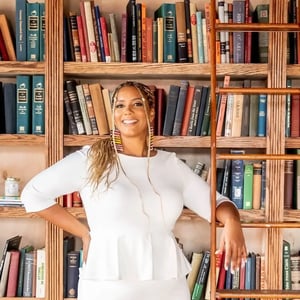
Meet Our Presenters
Sorted alphabetically by first name. More presenters to come soon as programming details are finalized.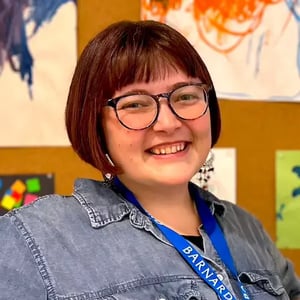
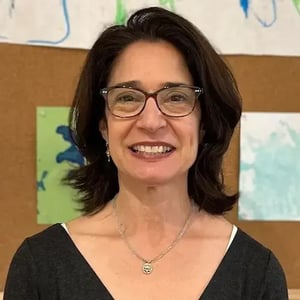

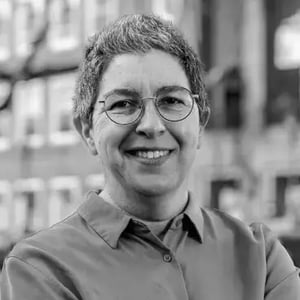
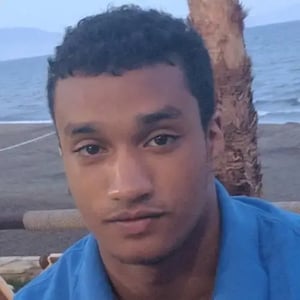

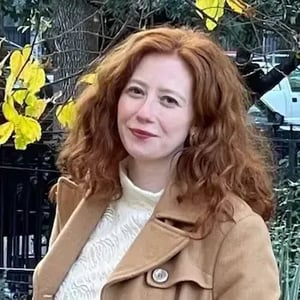
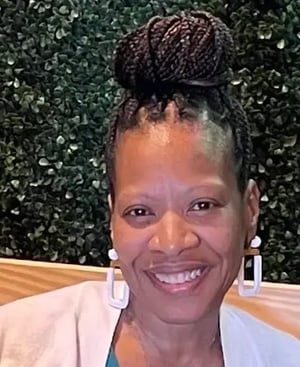
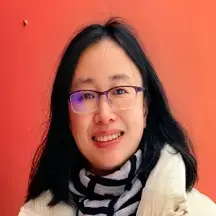
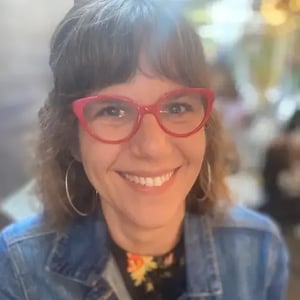
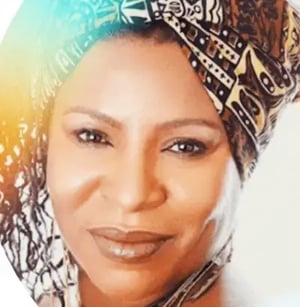
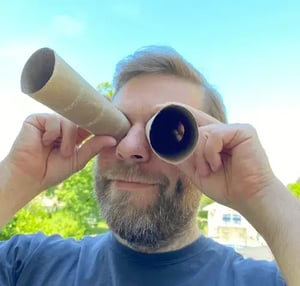
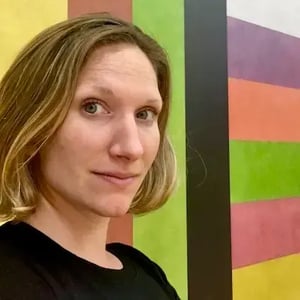
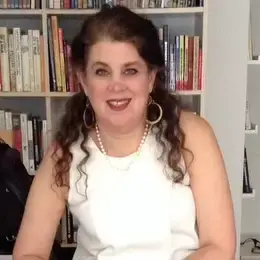
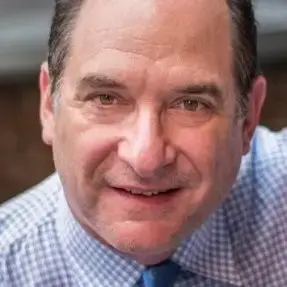
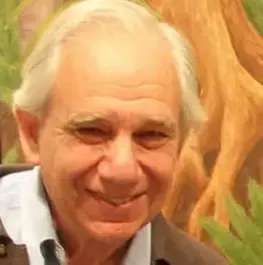
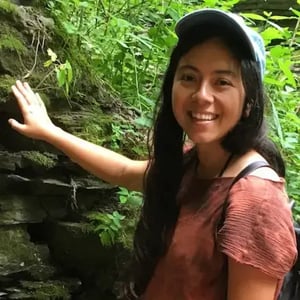

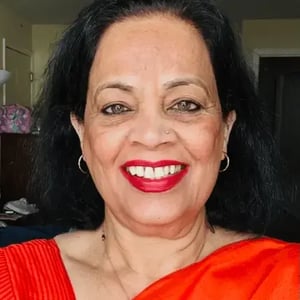
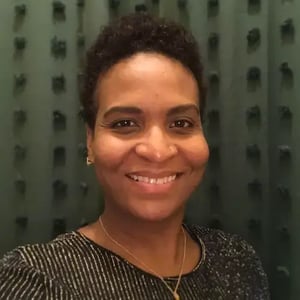
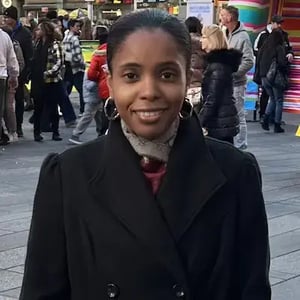
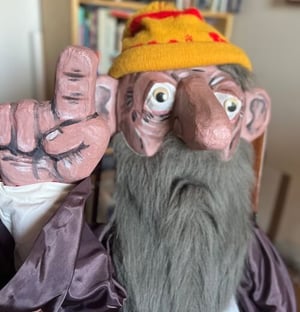
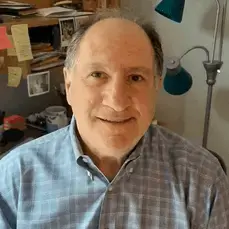
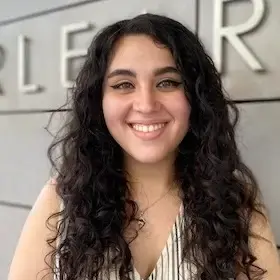
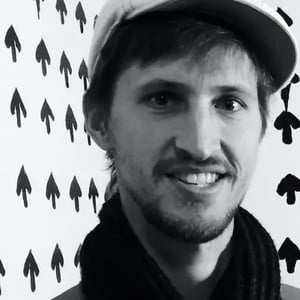
About the Organizers
Since its inception, conference programming has been designed by Colleen Goddard, Ph.D., Corlears School's Early Childhood Division Director and an Adjunct Professor at Brooklyn College, alongside Dr. Jacqueline D. Shannon, Associate Professor and chair of The Early Childhood Education/Art Education Department at Brooklyn College.
This year, we are also joined in partnership by Dr. Xia Li, an associate professor at Brooklyn College who presented at the 2024 conference on the topic of playful and developmentally appropriate math activities for children ages 2–5.
Below, you can learn more about the organizers and their expertise in the field of early childhood education.

Colleen Goddard, Ph.D.
Early Childhood Division Director, Corlears School
Adjunct Professor, Brooklyn College
Colleen holds a Ph.D. in Human/Child Development from Fielding Graduate University, where she also earned a Master's in Human and Organizational Studies. She received an additional Master's in Human Development with a specialization in Early Childhood Studies from Pacific Oaks College. Her dissertation explores the significance of transitional objects at the beginning and end of life.
Beyond her work at Corlears, Colleen is an adjunct professor at Brooklyn College and a contributing writer for the New York State Early Learning Guidelines, as part of the New York State Early Childhood Advisory Council. Her insights have been published by Psychology Today Online, PDI of CUNY, and more.
A lifelong advocate for early childhood development, Colleen finds joy in both professional and personal learning experiences. She especially treasures time spent with her son, particularly when he cooks for her.

Dr. Jacqueline D. Shannon
Associate Professor, Brooklyn College
Chair of the Early Childhood Education and Art Education Department, Brooklyn College
Jacqueline Shannon is associate professor in Early Childhood/Early Intervention with over 25 years of experience working with culturally and linguistically diverse children birth to five years with and without disabilities and their parents in home-, center- and hospital-based settings. Her research examines children’s development and parenting within the context of poverty, with a goal to improve services to children (0–5) and reduce disparities for ethnic and racial minority groups in NYC and internationally.
Dr. Shannon developed NY’s first Advanced Certificate in Early Intervention and Parenting (2014). Some publications appeared in Applied Developmental Science (2007), Child Development (2004, 2007) and Family Science (2013).
Prior to Brooklyn College, Dr. Shannon was a research scientist at NYU on the National EHS Research project, a NICHD post-doctoral research fellow, and directed a home-based parenting program in East Harlem, NY.

Dr. Xia Li
Associate Professor, Brooklyn College
Dr. Xia Li is an associate professor of early childhood education at Brooklyn College. She teachers undergraduate and graduate courses on math pedagogy. Her research involves investigating and measuring preschool teachers’ math pedagogical content knowledge in counting and numbers, number relation, as well as other content areas. Dr. Li earned her Ph.D. in Elementary Education with concentration on mathematics education from University of Illinois at Urbana-Champaign.
Contact Us
For any questions, concerns, or feedback, you can get in touch with the team at wonderment@corlearsschool.org.
To receive email related to the conference, you can join the mailing list by submitting your information below.
Memories from 2024
Visit our blog to see more photos and get a brief recap of the 2024 conference.
